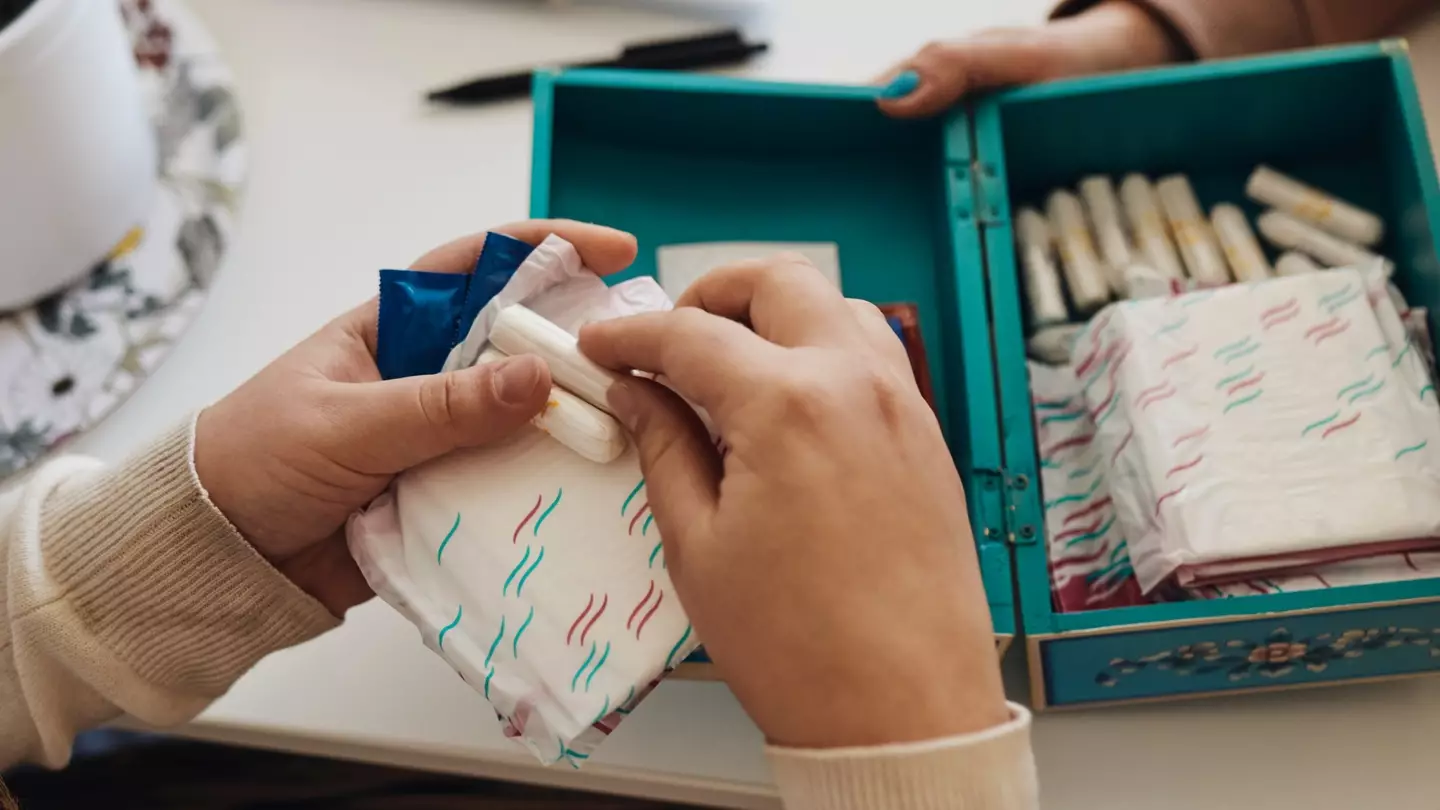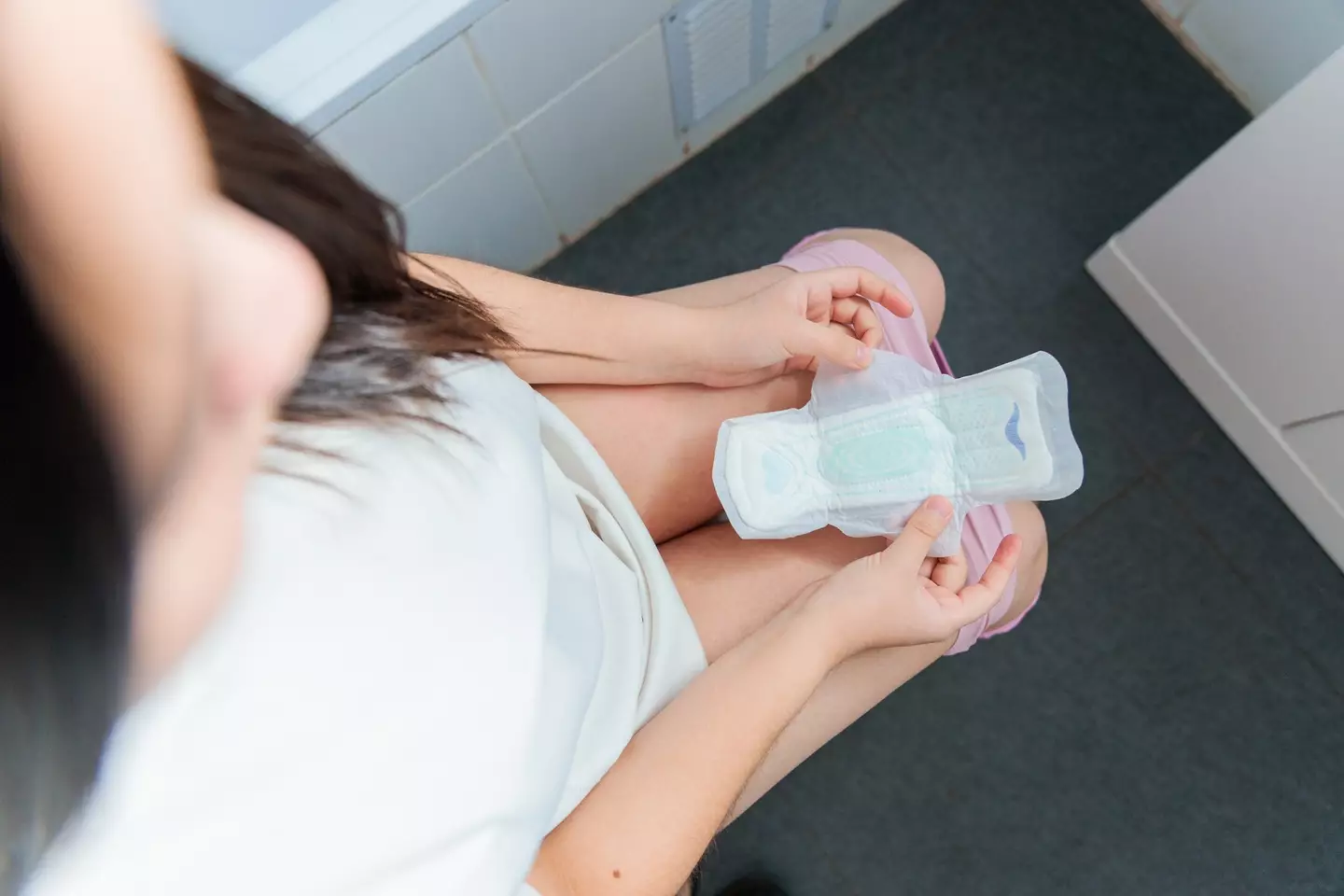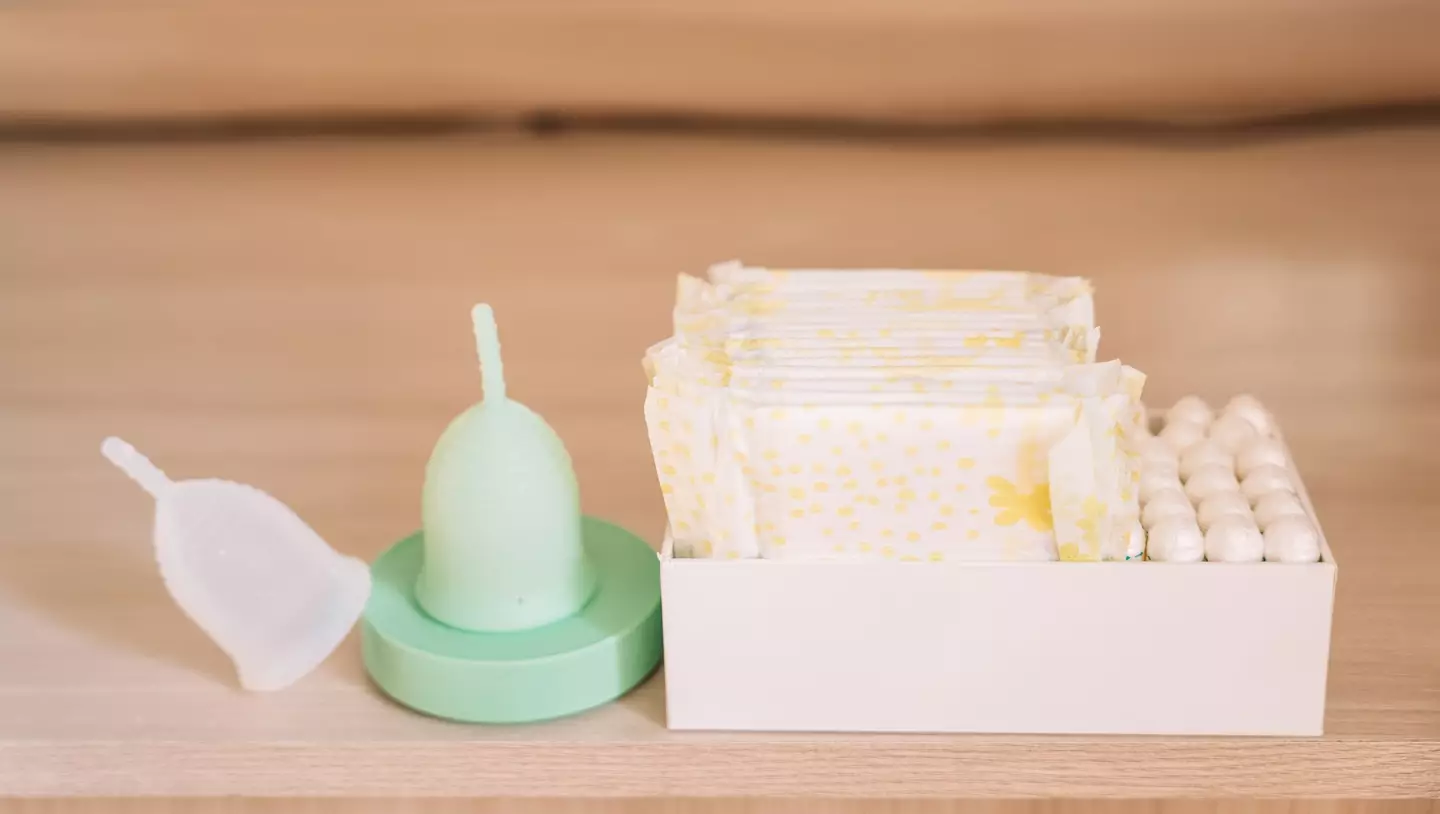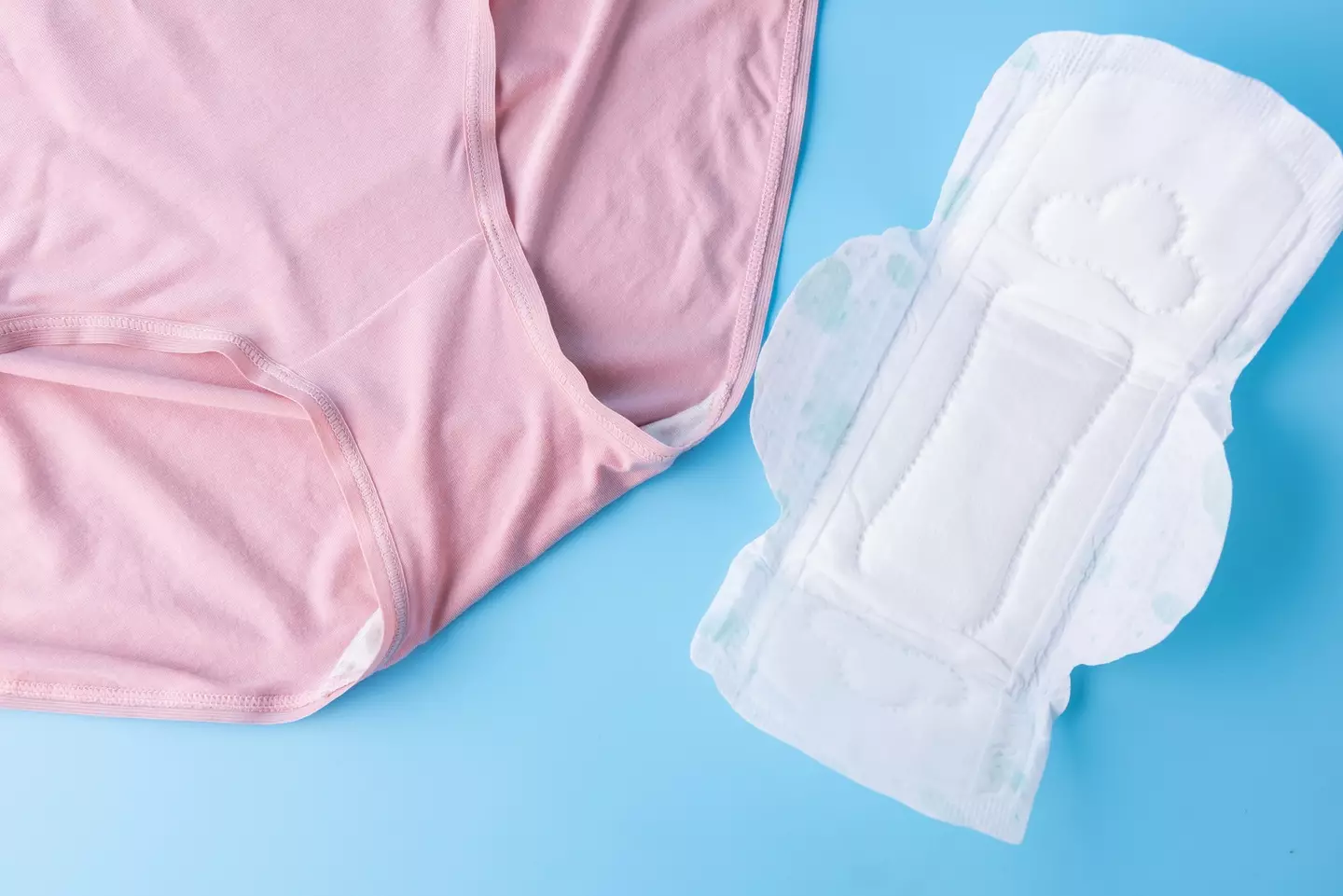
If you're someone who uses sanitary pads during your period, you might have experienced a rather uncomfortable and unpleasant side effect.
Although the number of people relying on products such as tampons and pads is declining in favour of more sustainable options - such as period underwear, menstrual cups or even 'free bleeding' - many still use sanitary products to manage their period.
But, doctors have warned about one health issue that can be associated with sanitary pads - and you might have experienced it yourself already.
Yep, unfortunately we are talking about thrush, which is a yeast infection caused by Candida.
Advert
Candida lives in the vagina of many people without causing any symptoms whatsoever, but if there's a shift in balance of good bacteria, the fungus can grow and cause symptoms.

Symptoms of thrush
These can include:
- White discharge, which does not usually smell
- Itching and irritation
- Soreness and stinging during sex or when you pee
- Redness, which can be harder to see on brown and black skin
Pregnancy, taking the contraceptive pill and antibiotics can all increase the risk of thrush.

Periods and thrush
Wearing a sanitary pad can also create the perfect breeding ground for bacteria, which can also cause the infection.
Dr Alex Eskander, gynaecologist and director of The Gynae Centre, explained: “Pantyliners are made of synthetic materials that restrict air flow, creating a hospitable environment for yeast. They also tend to cause irritation, reducing your skin’s immunity to infection.
“Yeast thrives in environments with a lot of moisture.
“Tampons and sanitary pads obviously hold moisture, so it’s best to change them often, especially in the warmer months.”
Meanwhile, a blog post on Cheeky Wipes - which sells reusable wipes, period pants and other environmentally-friendly sanitary products - adds: “Wearing traditional plastic sanitary pads can create the perfect environment for bacteria to thrive, which can lead to thrush.
“Pads can also irritate the skin around your vagina, leading to chafing and inflammation. Both of these further increase your risk of thrush.”

How to treat thrush
If you experience thrush, you can use anti-fungal medicine to treat the infection and alleviate symptoms.
The NHS explains: “You'll usually need anti-fungal medicine to get rid of thrush. This can be a tablet you take, a tablet you insert into your vagina (pessary) or a cream to relieve the irritation.
Thrush should clear up within 7 to 14 days of starting treatment.”
If you experience thrush while pregnant, it's important to seek advice from your doctor first.